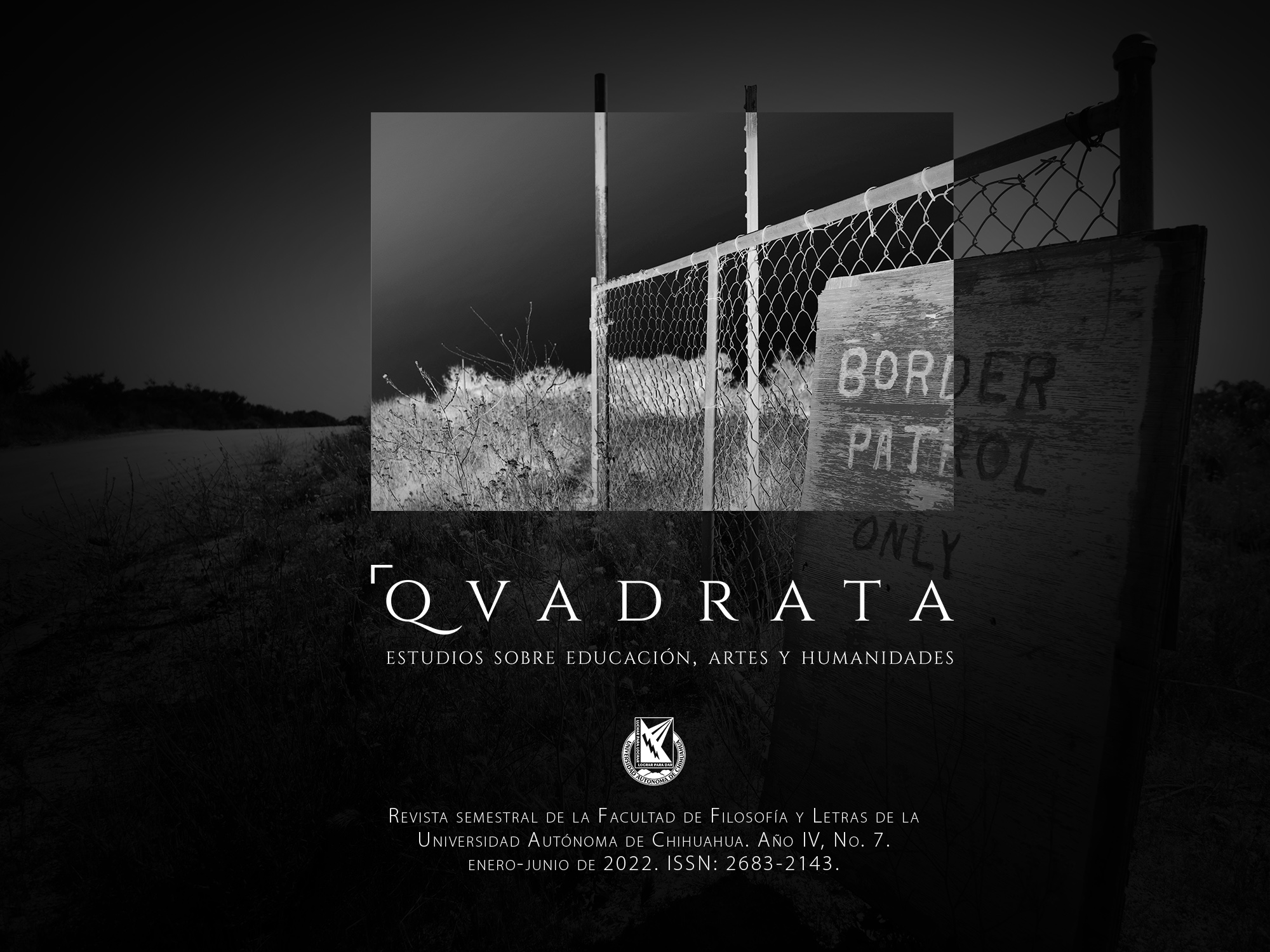Drug Trafficking and the Eurocentric Invention of the Other: a frontier reading
DOI:
https://doi.org/10.54167/qvadrata.v4i7.1004Keywords:
Palaces, drug trafficking, border, Latin AmericaAbstract
Starting from the theorization of “border biographical criticism” (Nolasco, 2017), this article proposes a reading of how the annulment of spaces was important so that the Eurocentric narrative (forged in temporality) could cover the means by which the project was consummated. that transformed Europe into “the center and end of universal history” (Dussel, 2007). To do so, we will start from the place where the discourse of this text emerges, that is, from the southern border of Brazil. In order to illustrate the discussion, we will approach the images of palaces that, in literature and philosophy, metaphorized geographic spaces. This is the Crystal Palace in London, a metaphor used for the first time by Dostoevsky and later taken up again by Peter Sloterdijk(2008). In such a perspective, the Crystal Palace in London was perceived as a representation of European civilization. On the other hand, we will find a similar metaphor in the palace/cartel of the novel Trabajos del Reino (2004) by Yuri Herrera, which, according to Romero (2015), can be read as the representation of a geographic space. Finally, drug trafficking will be approached as a way of British ascension that, after the narrative of universal history, became a stigmatized practice inherent to peoples other than Europeans.
References
Achugar, H. (2006). Planeta sem boca: escritos efêmeros sobre arte, cultura e literatura. Belo Horizonte: UFMG.
Arrighi, G. (2008). Adam Smith em Pequim: origens e fundamentos do século XXI. São Paulo: Boitempo Editorial.
Bernal, M. (1993). Atenea Negra: las raíces afroasiáticas de la civilización clásica. Barcelona: Crítica.
Dussel, E. (1996). Filosofía de la liberación. Bogotá: Nueva América.
______. (2007). Política de la liberación: historia y crítica. Madrid: Trotta.
Herrera, Y. (2010). Trabajos del reino. España. Periférica.
Hobson, J. (2006). Los Orígenes Orientales de la Civilización de Occidente. Barcelona: Crítica.
Mignolo, W. D. (2015). Habitar la frontera: sentir y pensar la descolonialidad (antología 1999- 2014). Barcelona: Editora Fundación CIDOB.
Needham, J. (1975). Dentro de los cuatros mares: el dialogo entre oriente y occidente. Buenos Aires: Siglo XXI.
Nolasco, E. C. (2017). Fronteiras platinas em Mato Grosso do Sul (Brasil/Paraguai/Bolívia). Campinas: Editora Pontes.
Rincón, O. (2013). Todos temos um pouco do tráfico dentro de nós: um ensaio sobre o narcotráfico/cultura/novela como modo de entrada para a modernidade. Matrizes 7(2), pp. 193-219.
Romero, L. M. (2015). Gubernamentalidad y construcción de sentidos de ciudadanía y criminalidad en la narcoliteratura. Tesis Doctoral. University of Oregon.
Sloterdijk, P. (2008). Palácio de cristal: para uma teoria filosófica da globalização. Lisboa: Relógio D’Água.





 QVADRATA. Estudios sobre Educación, Artes y Humanidades año V, número 9, enero-junio de 2023, es una publicación semestral editada por la Universidad Autónoma de Chihuahua. Calle Escorza #900. C.P. 31000, Chihuahua, Chih. Tel. (614) 439-1500 ext. 3844,
QVADRATA. Estudios sobre Educación, Artes y Humanidades año V, número 9, enero-junio de 2023, es una publicación semestral editada por la Universidad Autónoma de Chihuahua. Calle Escorza #900. C.P. 31000, Chihuahua, Chih. Tel. (614) 439-1500 ext. 3844, 
